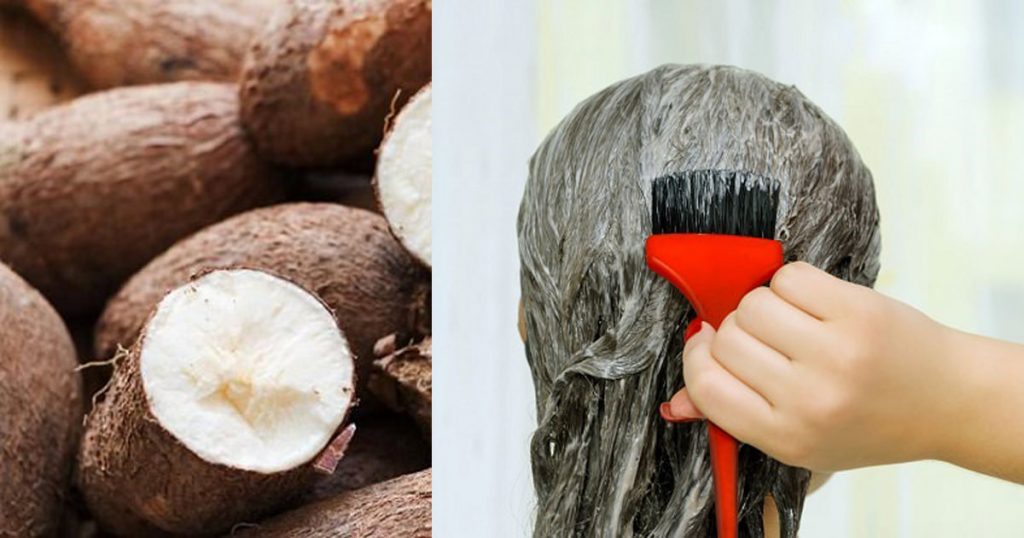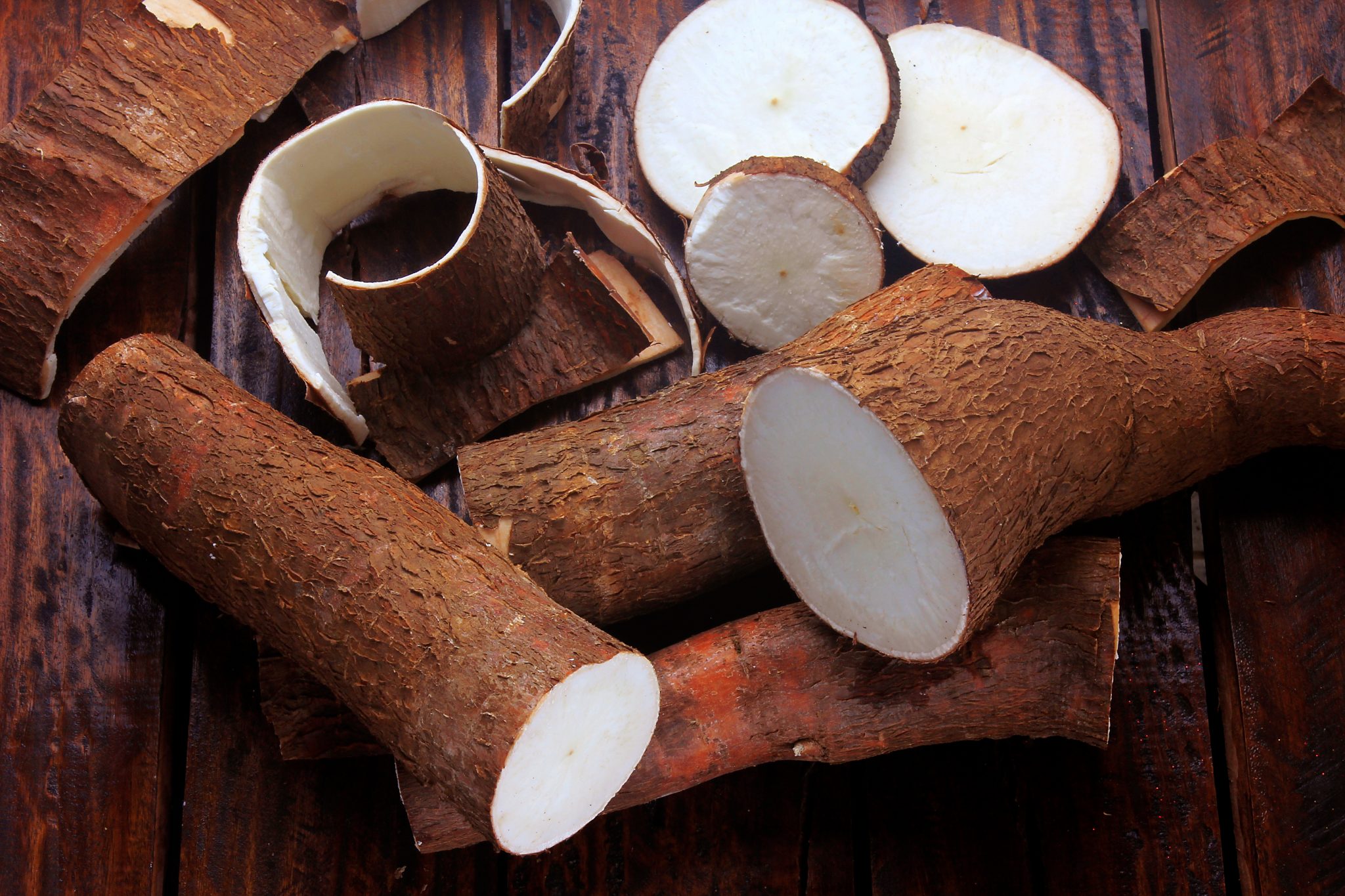Originally from South America, the Cassava, also known as tapioca, is an edible root vegetable. The skin is leathery, brown and scaly, and the starchy flesh is white. After rice and corn, in tropical Africa, Asia and Latin America, the cassava is seen as the third most important source of carbohydrates.
Rich in calcium, magnesium, phosphorus, potassium and vitamin C, cassava is known as being very beneficial to the overall health but it can also benefit the skin and hair in many ways.
Let’s take a look below at the benefits of cassava for the skin and hair as well as recipes for making a cassava face mask and how to make a cassava shampoo.
Benefits of Cassava for the Skin

Brightens Skin Tone
The fiber content of the cassava is not only beneficial for removing fat from the body, but it is also an excellent exfoliator. For dull, tanned skin, a light exfoliation of the skin with cassava can work wonders. To remove the tan, don’t remove the skin from the plant before putting it in the blender to make the mask. However, avoid this step if you have sensitive skin.
Makes Your Skin Flawless
The last thing a woman wants is to have dark spots and blemishes on her skin. While it’s natural to have them, some don’t feel safe. To get rid of stubborn marks, gently rub a cassava mask on your skin.
Nourishes the Skin
During winters, one of the most common skin problems is dryness. Along with applying a generous amount of moisturizer, the skin feels dehydrated. You can get rid of this problem by applying a cassava mask or adding it to your diet. It will gently moisturize your skin from within, without letting it break down in extreme weather conditions. If your skin texture is already dry, add honey and aloe vera to the mask before applying it.
Cassava Face Mask Recipe
Ingredients
- 1/2 bowl of cassava cubes
- 1/4 tablespoon almond oil
Directions
- Place cassava cubes in a blender and blend to a thick paste.
- If the mixture is too dry, add more almond oil and blend again.
- Once done, remove the mixture to a bowl.
- Apply to face and gently rub in a circular motion 2-3 times.
- Then leave the mask on for another 10-15 minutes.
- Wash off with normal water.
- Dry your face with a clean microfiber cloth.
Benefits of Cassava for Hair

Moisturize Your Hair
Malnourished hair looks lifeless and unattractive. During winter, dry air robs hair of its nutrition. This leads to split ends, dryness and brittleness. Provide sufficient nutrition and moisture to the hair by consuming cassava or applying a cassava hair mask.
Allows Hair Growth
The use of different chemicals can lead to various hair problems. The most common of these is hair loss or slow hair growth. To combat both of these hair problems, cassava can be very helpful. Not only does it revitalize your hair, but it also provides nutrients to strengthen the hair follicles.
Recipe for Homemade Cassava Shampoo
Ingredients
- 400 ml of filtered water
- 1 tablespoon of cassava flour
- 1 tablespoon of gel
- Essential oils (of your choice)
Directions
- Note that we don’t recommend mixing the ingredients in large quantities. Ideally, use them when they are fresh, that is, they should be used immediately.
- First, using a blender, combine the water, cassava flour, soap gel and essential oils and whisk.
- Then, set aside a bottle to pour the product.
- Finally, use it.
- Leave the yucca mask on for 10 to 15 minutes, so you’ll get more results.
- And, if you are not a fan of these homemade recipes, there are very good brands on the market that already work with cassava as the essence of their products, however, it is worth investigating before buying!
Extra tip: When choosing essential oils, focus on rosemary, grape seed and mint. In addition to leaving your mixture smelling great, they will add shine and treat your hair’s leather against dandruff.
Here you go! You now know the benefits of cassava on your skin and hair and know how you can use it. What natural ingredients do you usually use in your skincare? Share them with us in the comments below!


